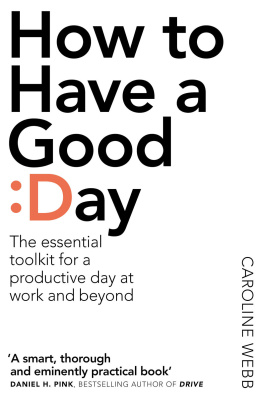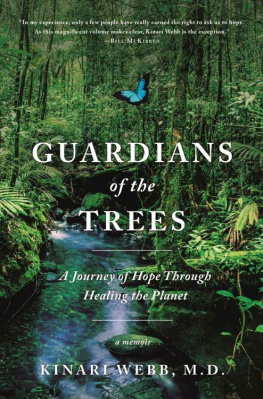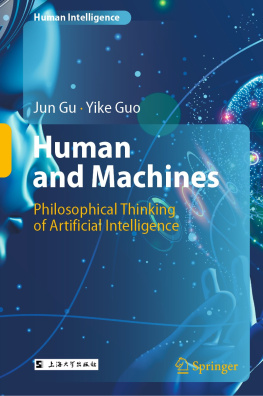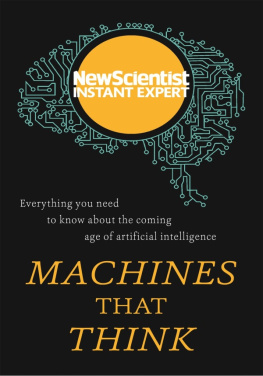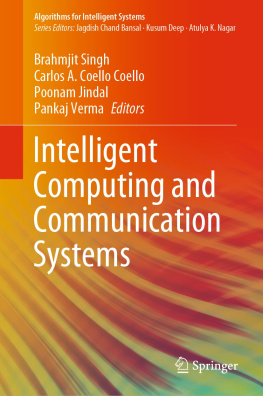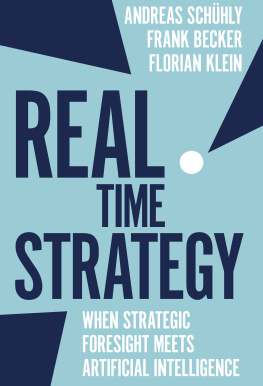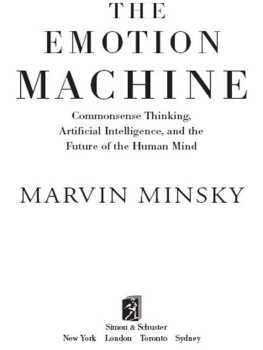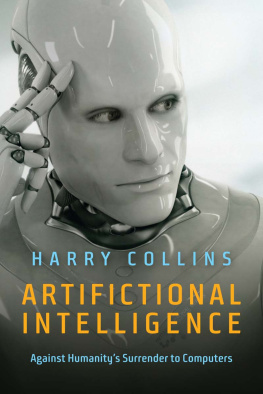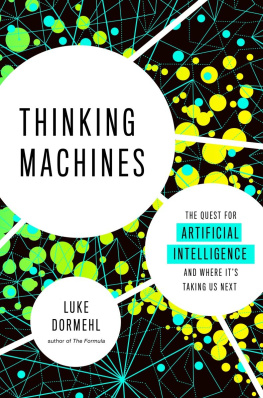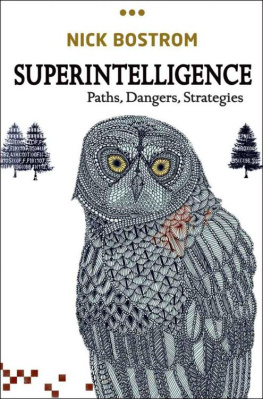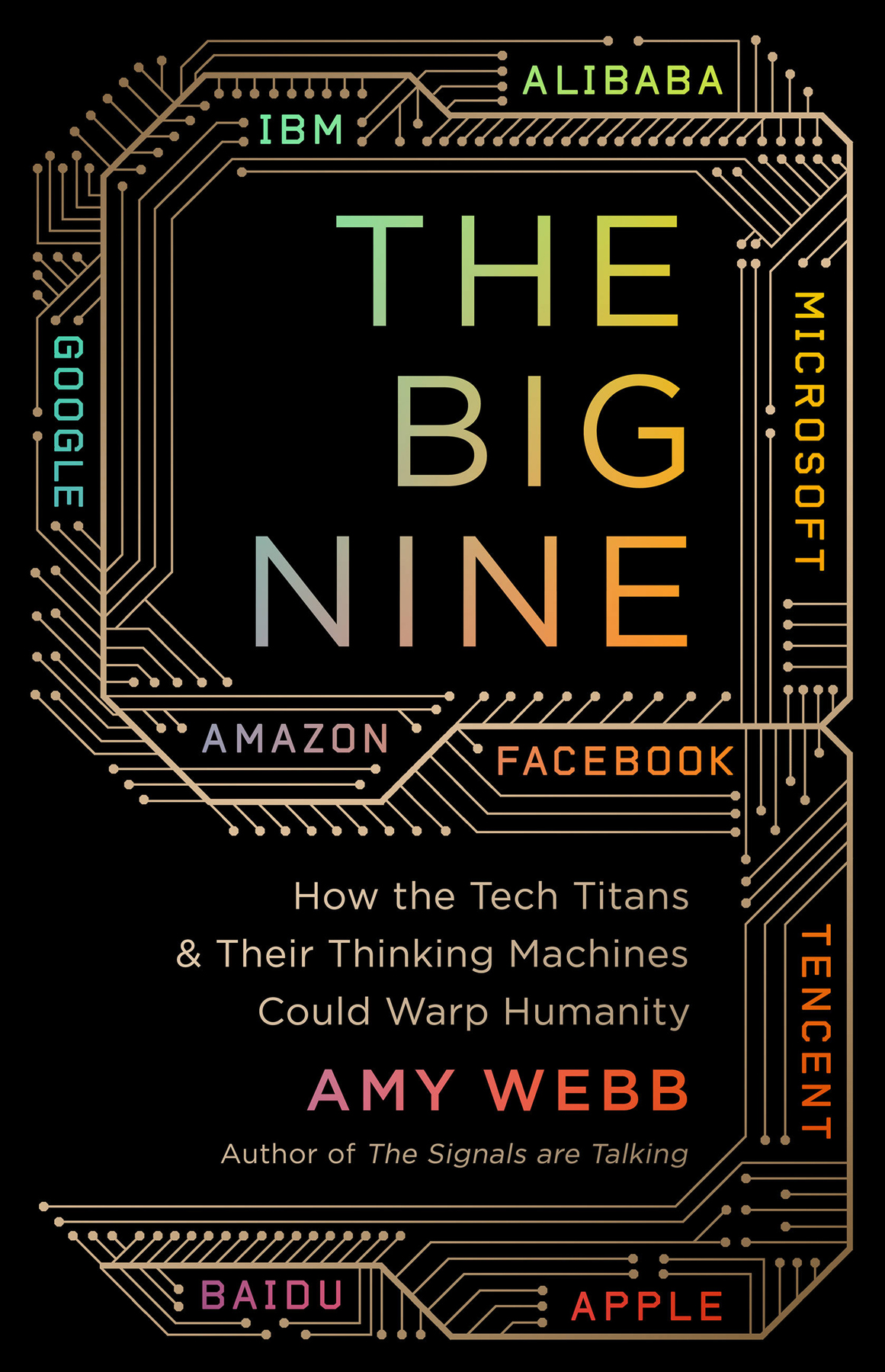Copyright 2019 by Amy Webb
Cover design by Pete Garceau
Cover copyright 2019 Hachette Book Group, Inc.
Hachette Book Group supports the right to free expression and the value of copyright. The purpose of copyright is to encourage writers and artists to produce the creative works that enrich our culture.
The scanning, uploading, and distribution of this book without permission is a theft of the authors intellectual property. If you would like permission to use material from the book (other than for review purposes), please contact permissions@hbgusa.com. Thank you for your support of the authors rights.
PublicAffairs
Hachette Book Group
1290 Avenue of the Americas, New York, NY 10104
www.publicaffairsbooks.com
@Public_Affairs
First Edition: March 2019
Published by PublicAffairs, an imprint of Perseus Books, LLC, a subsidiary of Hachette Book Group, Inc. The PublicAffairs name and logo is a trademark of the Hachette Book Group.
The Hachette Speakers Bureau provides a wide range of authors for speaking events. To find out more, go to www.hachettespeakersbureau.com or call (866) 376-6591.
The publisher is not responsible for websites (or their content) that are not owned by the publisher.
Library of Congress Cataloging-in-Publication Data
Names: Webb, Amy, 1974- author.
Title: The Big Nine : how the tech titans and their thinking machines could warp humanity / Amy Webb.
Description: New York : PublicAffairs, [2019] | Includes bibliographical references and index.
Identifiers: LCCN 2018048107| ISBN 9781541773752 (hardcover) | ISBN 9781541773745 (ebook)
Subjects: LCSH: Artificial intelligenceSocial aspects. | Artificial intelligenceEconomic aspects. | Internet industrySocial aspects. | Social responsibility of business.
Classification: LCC Q334.7 .W43 2019 | DDC 006.301dc23
LC record available at https://lccn.loc.gov/2018048107
ISBNs: 978-1-5417-7375-2 (hardcover); 978-1-5417-7374-5 (ebook); 978-1-5417-2441-9 (international)
E3-20190122-JV-NF-ORI
To my father, Don Webb, the most authentically intelligent person Ive ever known.
Discover More! Including giveaways, contests, and more.
Tap here to get started.

A rtificial intelligence is already here, but it didnt show up as we all expected. It is the quiet backbone of our financial systems, the power grid, and the retail supply chain. It is the invisible infrastructure that directs us through traffic, finds the right meaning in our mistyped words, and determines what we should buy, watch, listen to, and read. It is technology upon which our future is being built because it intersects with every aspect of our lives: health and medicine, housing, agriculture, transportation, sports, and even love, sex, and death.
AI isnt a tech trend, a buzzword, or a temporary distractionit is the third era of computing. We are in the midst of significant transformation, not unlike the generation who lived through the Industrial Revolution. At the beginning, no one recognized the transition they were in because the change happened gradually, relative to their lifespans. By the end, the world looked different: Great Britain and the United States had become the worlds two dominant powers, with enough industrial, military, and political capital to shape the course of the next century.
Everyone is debating AI and what it will mean for our futures ad nauseam. Youre already familiar with the usual arguments: the robots are coming to take our jobs, the robots will upend the economy, the robots will end up killing humans. Substitute machine for robot, and were cycling back to the same debates people had 200 years ago. Its natural to think about the impact of new technology on our jobs and our ability to earn money, since weve seen disruption across so many industries. Its understandable that when thinking about AI, our minds inevitably wander to HAL 9000 from 2001: A Space Odyssey, WOPR from War Games, Skynet from The Terminator, Rosie from The Jetsons, Delores from Westworld, or any of the other hundreds of anthropomorphized AIs from popular culture. If youre not working directly inside of the AI ecosystem, the future seems either fantastical or frightening, and for all the wrong reasons.
Those who arent steeped in the day-to-day research and development of AI cant see signals clearly, which is why public debate about AI references the robot overlords youve seen in recent movies. Or it reflects a kind of manic, unbridled optimism. The lack of nuance is one part of AIs genesis problem: some dramatically overestimate the applicability of AI, while others argue it will become an unstoppable weapon.
I know this because Ive spent much of the past decade researching AI and meeting with people and organizations both inside and outside of the AI ecosystem. Ive advised a wide variety of companies at the epicenter of artificial intelligence, which include Microsoft and IBM. Ive met with and advised stakeholders on the outside: venture capitalists and private equity managers, leaders within the Department of Defense and State Department, and various lawmakers who think regulation is the only way forward. Ive also had hundreds of meetings with academic researchers and technologists working directly in the trenches. Rarely do those working directly in AI share the extreme apocalyptic or utopian visions of the future we tend to hear about in the news.
Thats because, like researchers in other areas of science, those actually building the future of AI want to temper expectations. Achieving huge milestones takes patience, time, money, and resiliencethis is something we repeatedly forget. They are slogging away, working bit by bit on wildly complicated problems, sometimes making very little progress. These people are smart, worldly, and, in my experience, compassionate and thoughtful.
Overwhelmingly, they work at nine tech giantsGoogle, Amazon, Apple, IBM, Microsoft, and Facebook in the United States and Baidu, Alibaba, and Tencent in Chinathat are building AI in order to usher in a better, brighter future for us all. I firmly believe that the leaders of these nine companies are driven by a profound sense of altruism and a desire to serve the greater good: they clearly see the potential of AI to improve health care and longevity, to solve our impending climate issues, and to lift millions of people out of poverty. We are already seeing the positive and tangible benefits of their work across all industries and everyday life.
The problem is that external forces pressuring the nine big tech giantsand by extension, those working inside the ecosystemare conspiring against their best intentions for our futures. Theres a lot of blame to pass around.
In the US, relentless market demands and unrealistic expectations for new products and services have made long-term planning impossible. We expect Google, Amazon, Apple, Facebook, Microsoft, and IBM to make bold new AI product announcements at their annual conferences, as though R&D breakthroughs can be scheduled. If these companies dont present us with shinier products than the previous year, we talk about them as if theyre failures. Or we question whether AI is over. Or we question their leadership. Not once have we given these companies a few years to hunker down and work without requiring them to dazzle us at regular intervals. God forbid one of these companies decides not to make any official announcements for a few monthswe assume that their silence implies a skunkworks project that will invariably upset us.






